A Cold, Wet Spring
A Cold, Wet Spring
We are coming out of a cold, wet spring and although the weather has improved at the end of May, it’s important to be aware that the consequences of the damp, cool conditions will be seen later in the summer. Here are a few things you’ll need to be aware of.
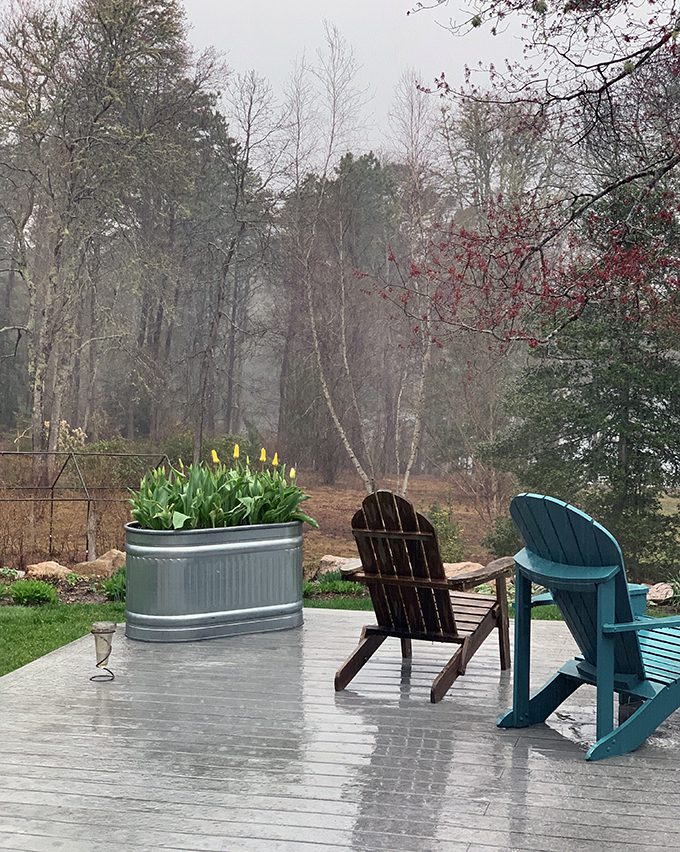
Day after day of rain and drizzle in the spring keeps soil temperatures cooler. If you planted summer seeds such as zinnias or green beans in early May you might find that they have rotted in the ground before sprouting. If any of your seeds haven’t germinated in 10 days, plant them again.
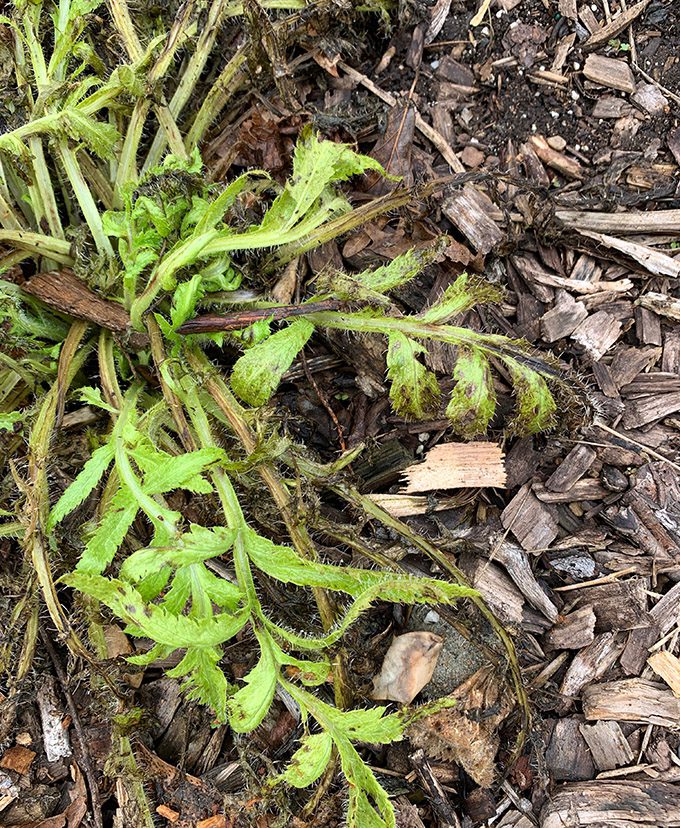
If your perennial poppies look like this, know that it’s a fungal problem caused by too much rainfall. Remove any totally blackened leaves and spray with an organic fungicide such as Serenade or Revitalize. They might not bloom this year. but as long as the roots didn’t rot the plants will be back next spring.
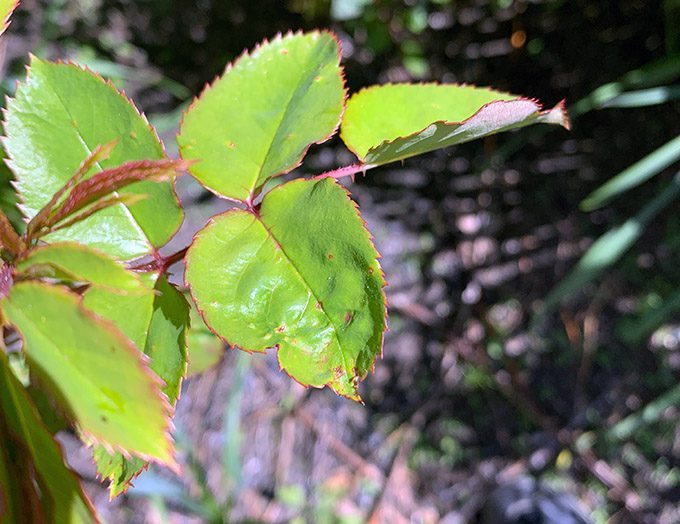
You can just see the beginning of black spot on these roses. Your roses might look very good early in June but develop yellowing leaves and black spot later. Spray now with an organic fungicide. You can use Serenade, Revitalize, or a copper based product. Spraying the roses now won’t cure the black spot that is already there, but it can delay the spreading of the fungus and protect the newer leaves.
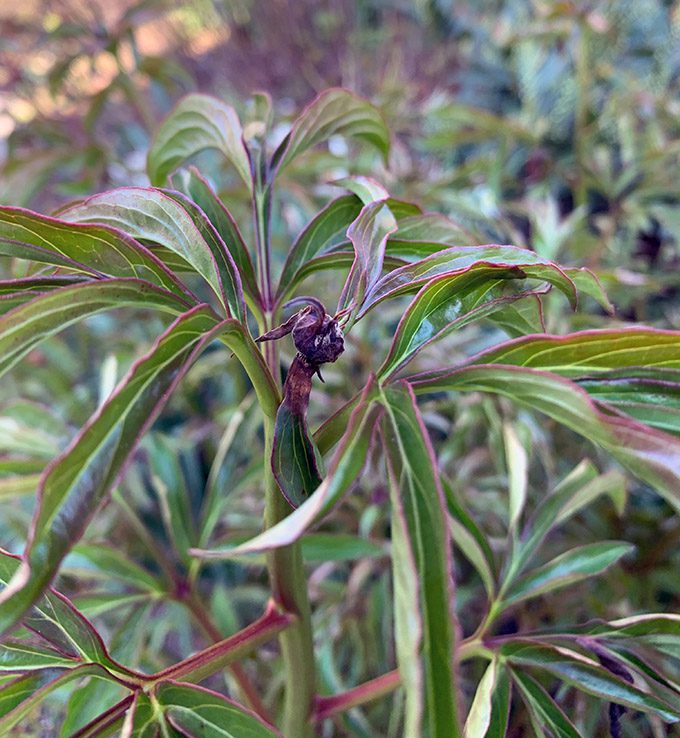
Peony bud blast will be seen on most peony plants this summer. If you have buds that turn black and never open, that’s the fungal condition called bud blast or peony botrytis. Cut off black buds and leaves and throw away. Spray good buds with a fungicide now.
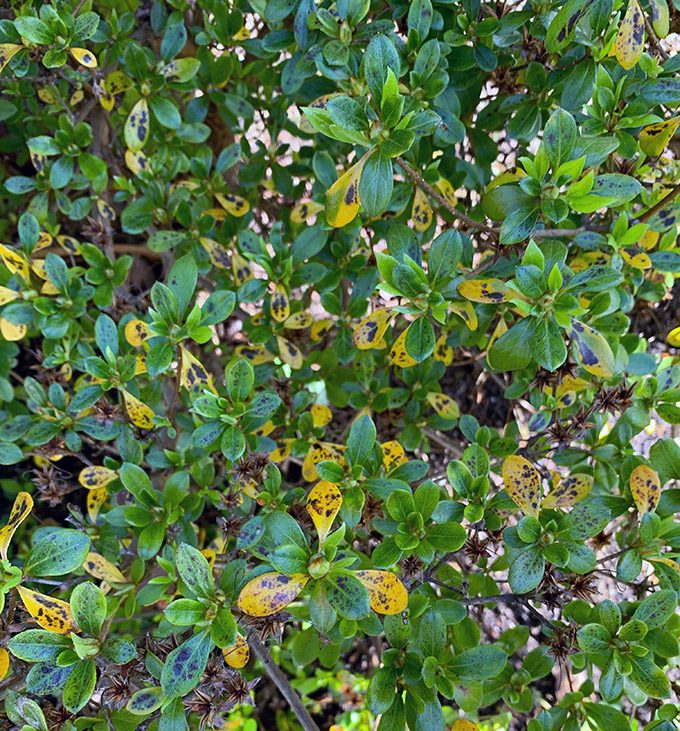
At this time of year we’re seeing the leaf spots on rhododendrons and azaleas that formed last year – the plants are shedding the old leaves (yellow in this photo) and are growing new ones. If you want to protect the newer foliage you can use any of the fungicides mentioned above as the new leaves come out.
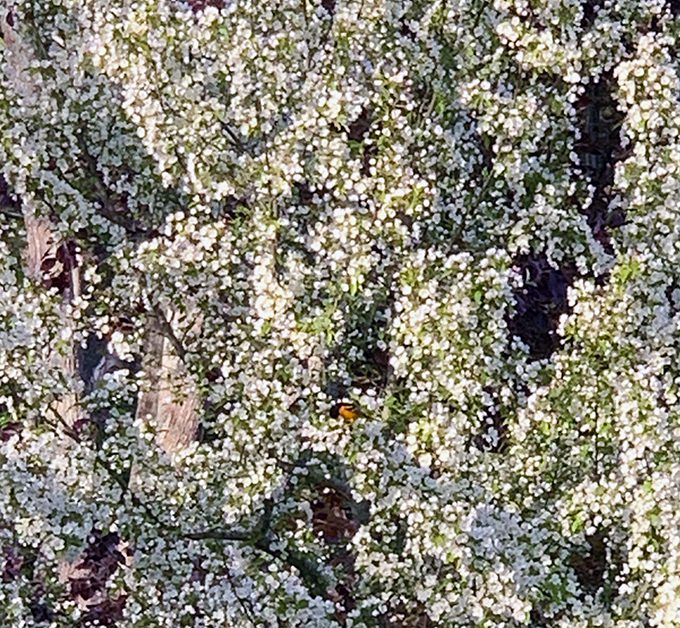
If you have fruit trees that depend on the pollination of bees for fruit set, you might find that there’s a lighter harvest this year. If the trees or blueberry bushes were in flower during the rainy weather, the bees might not have been flying as much. Note the baltimore oriole in this apple tree…he’s found an insect to eat, perhaps the winter moth larvae. Orioles might like oranges and grape jelly early in the season, but they are primarily bug eaters later on.
In addition to the various fungal problems we’ll be seeing, it’s likely that you’ll find more weeds in your gardens this year. The constant moisture is perfect for germinating weed seeds. So get into the perennial beds early to pull weeds, and know that a two inch layer of mulch will help to suppress any future growth of those unwanted plants.
Take home message: spraying any plants that have had leaf-spot problems in the past is probably a good idea. These might include variegated red twig dogwood, hydrangeas, rhododendrons, and roses.
Subscribe To Our Newsletter
Sign up for our weekly email about sales and events.
